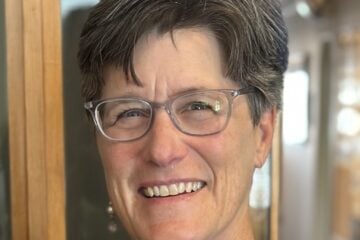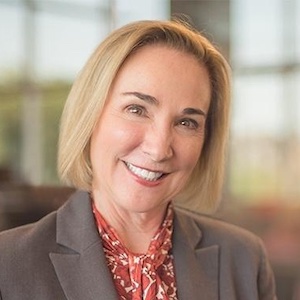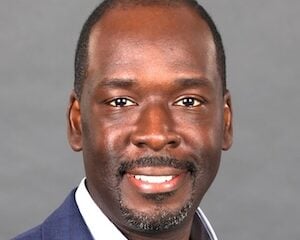Former KCPT president Bill Reed dies at 81

Kansas City PBS
Bill Reed
William Thomas Reed, former president and GM of KCPT in Kansas City, Mo., died Dec. 26 in Kansas City after an extended illness. He was 81.
Reed, known to colleagues and friends as “Bill,” became the leader of KCPT in 1992 after a brief stint as a consultant for CPB.
Under his watch, KCPT became one of the first PBS stations in the country to convert to digital broadcasting. In 2003, the Kansas City Business Journal named it Best Place to Work for Community Partnership.
During Reed’s tenure, the station also won 21 regional Emmy awards and one national Emmy in 2004 for co-producing Be Good, Smile Pretty, a war documentary that follows a woman attempting to come to terms with her father’s killing in Vietnam.

Dennis Moore, a former member of the U.S. House of Representatives who served in Kansas’ third congressional district, honored Reed on the House floor when he retired from public media in 2005.
“From 1997 to 2001, KCPT successfully conducted a capital campaign that raised $10 million to renovate its facilities on 31st Street and to purchase digital television equipment,” Moore said in his speech. “The station was among the first stations to go on the air with digital television and was cited by PBS as one of seven Digital Pioneers in public television.”
In a statement, Tom Hall, former chairman of the KCPT board of directors, said Reed “was a wonderful leader and true visionary. Kansas City Public Television is better today because of his efforts.”
KCPT President Kliff Kuehl honored Reed in a statement naming him to the Public Media Honor Roll.
“He was key in educational programs for children in Kansas City; and also local programming. He was a pioneer in digital broadcasting,” Kuehl said.
Reed was born Aug. 11, 1938, in Los Angeles to Jack and Virginia Reed. He grew up in Yermo, Calif., and was raised as an avid reader with athletic chops.
As a student-athlete, Reed was awarded a football scholarship to be a lineman, including left tackle, for the University of the Pacific in Stockton, Calif. He later earned his bachelor’s degree in history in 1962. Reed met his wife Mary Ann Guerrero at the university, and they married the same year.
Reed kept busy in the ’60s. After he finished his year of graduate studies to receive his secondary teaching credential in 1963, he was scouted by the Los Angeles Rams and the San Francisco 49ers. But Reed never got to play professional football due to a knee injury and getting drafted to serve in Vietnam.
Reed was a member of the Army’s 339th transportation company on rescue and recovery missions. He earned several awards for his service, including a Bronze Star, an Air Medal with Three Oak Leaf Clusters for meritorious achievement in flight, an Armed Forces Expeditionary Medal and an Army Commendation Medal for Valor.
After Vietnam, Reed returned to California to work as a school teacher in Redding. In September 1967, he became the GM of a relatively new TV station, KIXE, which would later become one of the first PBS affiliates. It was his first job in public media.
In Reed’s public obituary, former Oregon Public Broadcasting CEO Maynard Orme, who knew Reed during his KIXE tenure, said Reed was one of the best public broadcasters he knew.
“We were members of the California State Public Broadcasting system, and met many times over the years,” Orme said. “I considered him a great friend. He had a heart as big as his body. It is very emotional to think about his loss.”
Paul Corbin, who was working at KTWU in Topeka, Kan., when he met Reed in 1972, said they shared a friendship for nearly 50 years.
“He was a loyal friend,” Corbin said. “We shared many common interests; Formula One, Indy and NASCAR racing, college and pro football, all genres of music, good jokes, creative menus and cocktails.”
After several years with KIXE, Reed joined PBS in 1974 as a director of station relations, according to Mac Wall, former executive director of Kentucky Education Television. Four years later, Reed was promoted to SVP of educational services.
To capitalize on the growing videocassette and home media markets, he pushed for PBS to collaborate with Pacific Arts Home Video and Boston affiliate WGBH to create PBS Home Video. Further partnerships with public media stars like Ken Burns boosted revenues for videocassette deals.
Reed also launched the Adult Learning Service at PBS in 1981, a college-credit course that aired on television and served millions of students. PBS ALS, which included subjects like college algebra, was later part of the PBS YOU initiative, created in 2001. The Adult Learning Service ended in 2005. PBS YOU dissolved in 2006.
When Reed left PBS in 1991, the Pacific Mountain Network Board honored him with its Governor’s Award for distinguished service to public television.
Reed was an advocate for public media throughout his career, arguing in 2005 against proposals to defund the industry. He was a member of the CPB’s Digital Television Task Force and was on the boards of PBS, American Public Television and America’s Public Television Stations. He was the first chairman of the National Educational Telecommunications Association.
He was also president of the Jackson County Historical Society, president of the Public Television Association of Missouri, chairman of the Kansas Public Broadcasting Council and a member of the Video Advisory Committee to the Missouri Department of Elementary and Secondary Education.
Reed is survived by his wife of 57 years, Mary Ann; their two children, John and Elizabeth; and his brother, John.





